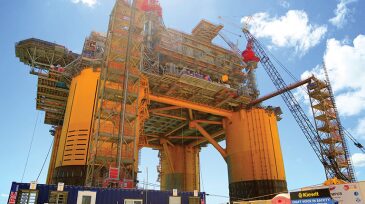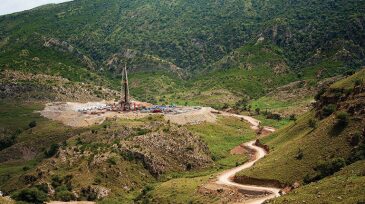Technology
Over the past decade, oilfield service companies have transformed logging-while-drilling (LWD) development into a faster, collaborative, system-level process that delivers improved reliability from the first run and makes development philosophy as important as the technology itself.
Saipem's center includes a full-scale simulator designed to replicate real operational scenarios to deliver an immersive training experience.
EZOps will integrate its Mobile Oilfield Management platform into the college’s energy technology program, giving students hands-on experience with digital tools used in modern oilfield operations.
-
Shell's Salil Banerjee talks about the challenges of mature oil fields.
-
The significance of mature assets to the operations of companies large and small.
-
The growing desire of offshore operators to speed up subsea field development while reducing costs has fostered many compelling innovations.
-
The new Olympus tension leg platform (TLP) is the largest in the US Gulf of Mexico, with more than twice the displacement of the neighboring Mars TLP. It marks a leap forward in safety, improved operation time, and increased production capacity.
-
ValvTechnologies added bidirectional flow capabilities to its existing V1 valve product line. The company said it is the first backpressure-resistant, metal-seated ball valve on the market. In applications such as boiler feed recirculation valves, feedwater heater isolation bypass valves, and feedwater isolation bypass block valves, the V1 prevents the load spring fro…
-
The demand for more and more oil and gas has prompted the industry to seek new areas of hydrocarbon deposits, and the development of subsea completions has kept pace.
-
Photo by Osama Ikram Awan, Growww 2012 trainee engineer (Drilling Department), MOL, TAL Block, Province KP, Pakistan.
-
Shell Canada’s Andrew Chen and Ronald Pagan discuss what a petrophysicist does and petrophysics as a career in the petroleum industry.
-
-
This article highlights key knowledge that was shared at the SPE’s “Collision Avoidance and Well Interceptions Applied Technology Workshop” held in Inverness, United Kingdom, in September.













